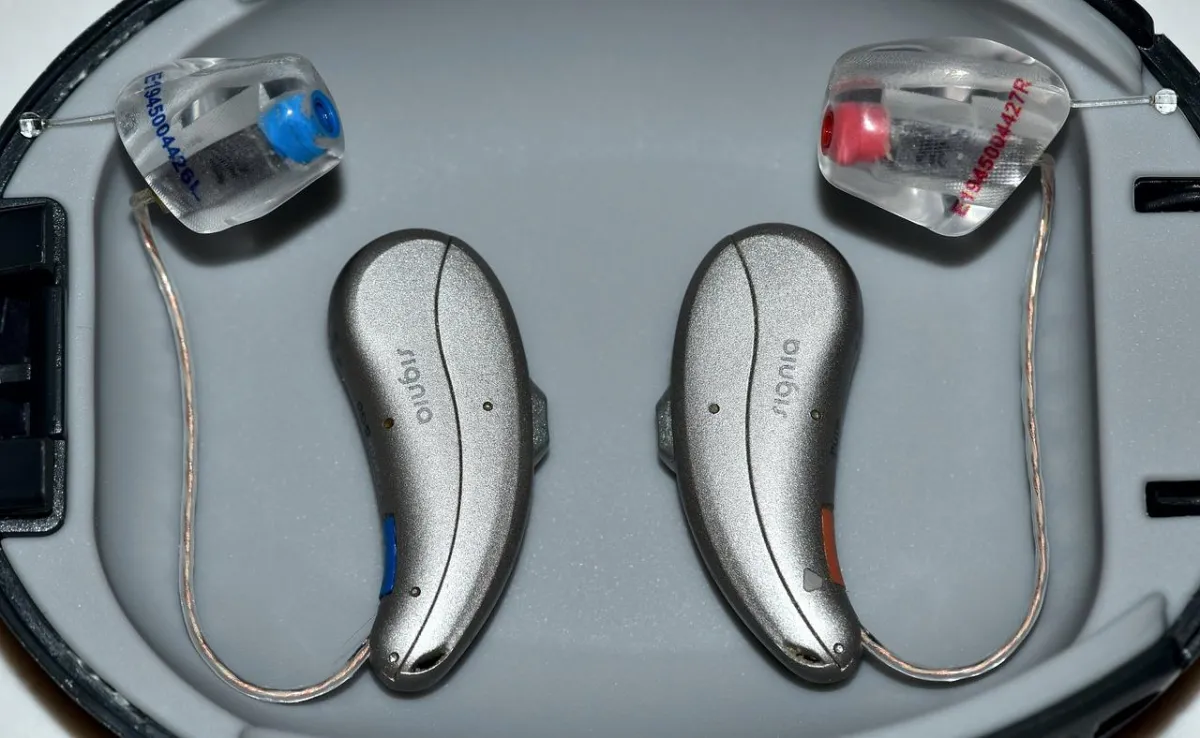
Do hearing aids improve tinnitus?
A common question we receive from people suffering from bothersome tinnitus pertains to whether hearing aids will help them if they are more bothered by tinnitus than hearing loss. Let's explore that question in more detail.
The majority of people with intrusive persistent tinnitus have associated hearing loss. In fact, most of the theories about tinnitus generation and perpetuation are related to how the brain compensates in response to reduced auditory stimulation in the setting of hearing loss. One of the leading theories about tinnitus generation postulates that tinnitus occurs because the brain of a person with hearing loss, starved of auditory stimulation, tries to "turn up the volume" inside the head. With this "central gain" process amplifying signals coming from the inner ears towards the brain, people begin to perceive background electrical activity within the auditory system (experiencing a sound that if not actually there = tinnitus). I compare this to the buzz you can hear from stereo speakers if you turn up the volume without music playing. This process also explains why many tinnitus sufferers also report increased sensitivity to many environmental sounds.
The most common pattern of hearing loss we see in tinnitus sufferers predominantly affects the highest frequencies of human hearing. These are the frequencies that typically are most affected by age-related decline in hearing (presbycusis) and noise-induced hearing loss.
Hearing aids have been traditionally recommended when a person develops a hearing loss that is negatively affecting their communication and quality of life. However, more recent scientific evidence suggests that hearing aids can have additional positive effects in the brain including promoting neural reorganization that can improve speech perception, global cognitive function, executive function, processing speed and even visual working memory.
But how do hearing aids help with tinnitus? First of all, properly-fitted hearing aids will amplify frequencies that the tinnitus sufferer is not hearing normally. By increasing the volume of these normal environmental sounds, we reduce the relative loudness of the tinnitus compared to the background soundscape. When the perceived tinnitus loudness is reduced, it tends to be less intrusive and easier to ignore. In addition, it is thought that the amplification provided by the hearing aids maintains stimulation of those brain centers that are designed to receive and process sound input. Since the deprivation of stimulation in these brain centers may be the initial trigger for tinnitus creation, we also theorize that maintaining stimulation of these brain regions going forward may prevent progression of the tinnitus.
But theories are just theories. Is there any scientific data to demonstrate that hearing aids improve the severity of tinnitus? In fact, there are dozens of clinical studies that have examined this question. A recent meta-analysis was published in The American Journal of Audiology (Waechter, S. et al. (2022). Hearing aids mitigate tinnitus, but does it matter if the patient receives amplification in accordance with their hearing impairment or not? a meta-analysis. American Journal of Audiology, 31) that analyzed the results of twenty seven published studies that reported the effects of hearing aid use on tinnitus severity. The pooled data demonstrated clearly that properly fitted hearing aids (preferably with REM amplification verification) reduced both the perceived tinnitus loudness and measures of tinnitus-related distress. They also observed that the benefits of hearing aids in reducing tinnitus distress actually increased over time with ongoing use. They postulated that this increasing benefit over time may be evidence of the hearing aids slowly producing beneficial neuroplastic changes in the brain.
The bottom line: If your tinnitus is associated with a hearing loss of more than a mild degree, the Alleviate Integrative Tinnitus Therapy program recommends that you be fitted with open mold, programmable digital hearing aids with REM amplification verification.



